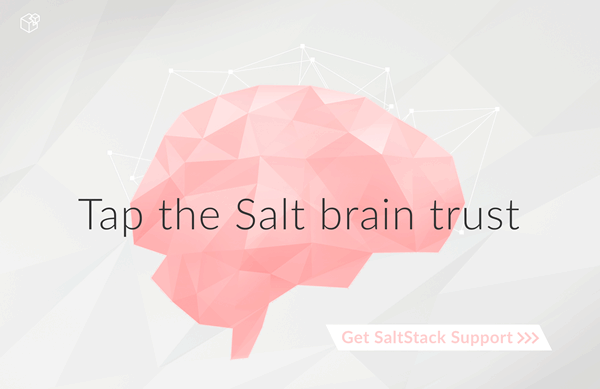Installation¶
See also
Installing Salt for development and contributing to the project.
Quick Install¶
On most distributions, you can set up a Salt Minion with the Salt Bootstrap.
Platform-specific Installation Instructions¶
These guides go into detail how to install Salt on a given platform.
Dependencies¶
Salt should run on any Unix-like platform so long as the dependencies are met.
- Python 2.6 >= 2.6 <3.0
- msgpack-python - High-performance message interchange format
- YAML - Python YAML bindings
- Jinja2 - parsing Salt States (configurable in the master settings)
- MarkupSafe - Implements a XML/HTML/XHTML Markup safe string for Python
- apache-libcloud - Python lib for interacting with many of the popular cloud service providers using a unified API
- Requests - HTTP library
Depending on the chosen Salt transport, ZeroMQ or RAET, dependencies vary:
- ZeroMQ:
- RAET:
Salt defaults to the ZeroMQ transport, and the choice can be made at install time, for example:
python setup.py --salt-transport=raet install
This way, only the required dependencies are pulled by the setup script if need be.
If installing using pip, the --salt-transport install option can be
provided like:
pip install --install-option="--salt-transport=raet" salt
Note
Salt does not bundle dependencies that are typically distributed as part of the base OS. If you have unmet dependencies and are using a custom or minimal installation, you might need to install some additional packages from your OS vendor.
Optional Dependencies¶
Upgrading Salt¶
When upgrading Salt, the master(s) should always be upgraded first. Backward compatibility for minions running newer versions of salt than their masters is not guaranteed.
Whenever possible, backward compatibility between new masters and old minions will be preserved. Generally, the only exception to this policy is in case of a security vulnerability.
Building Packages using Salt Pack¶
Salt-pack is an open-source package builder for most commonly used Linux platforms, for example: Redhat/CentOS and Debian/Ubuntu families, utilizing SaltStack states and execution modules to build Salt and a specified set of dependencies, from which a platform specific repository can be built.


